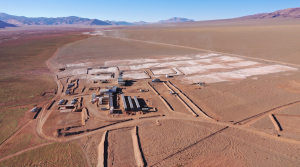Glencore unit pleads guilty to bribery in Africa
Glencore pleaded guilty to seven counts of bribery in connection with oil operations in five African countries. (Image courtesy of Glencore.)
A British subsidiary of Glencore (LON: GLEN) formally pleaded guilty on Tuesday to the seven charges of bribery brought against the mining and commodities trader by the UK Serious Fraud Office (SFO), which relate to the firm’s oil operations in Africa.
Glencore Energy confessed to paying $28 million in bribes to secure preferential access to oil, including increased cargoes, valuable grades of oil and preferable dates of delivery in Cameroon, Equatorial Guinea, Ivory Coast, Nigeria and South Sudan.
The company, which also admitted to generating illicit profits between 2011 and 2016, will be sentenced on November 2 and 3, the SFO said.
The successful prosecution is the SFO’s third corporate conviction under the 2010 Bribery Act and makes Glencore the first company to admit to paying off an institution or person under those rules.
The anti-corruption office is still mulling prosecutions against individuals as it, so far, has not targeted any people at the company, triggering criticism.
Glencore has been the subject of multiple investigations in the UK, the United States and Brazil over the past four years for alleged money laundering and corruption.
The company announced in February it had set aside $1.5 billion to cover the costs of settlements it hoped to reach this year.
The Swiss firm in May tackled international bribery charges in the US, pleading guilty to violating the Foreign Corrupt Practices Act. Glencore agreed to pay $1.1 billion to resolve the case spanning seven countries. It also accepted separate fines for manipulating oil prices at US shipping ports.
It further agreed to pay more than $39.5 million under a resolution signed with the Brazilian Federal Prosecutor’s Office (MPF) in connection with its bribery investigation.
Glencore, which is also subject to investigations from Swiss and Dutch authorities, has said the timing of those probes remains uncertain but would expect any possible resolution to avoid duplicate penalties for the same conduct.
Share this content:














